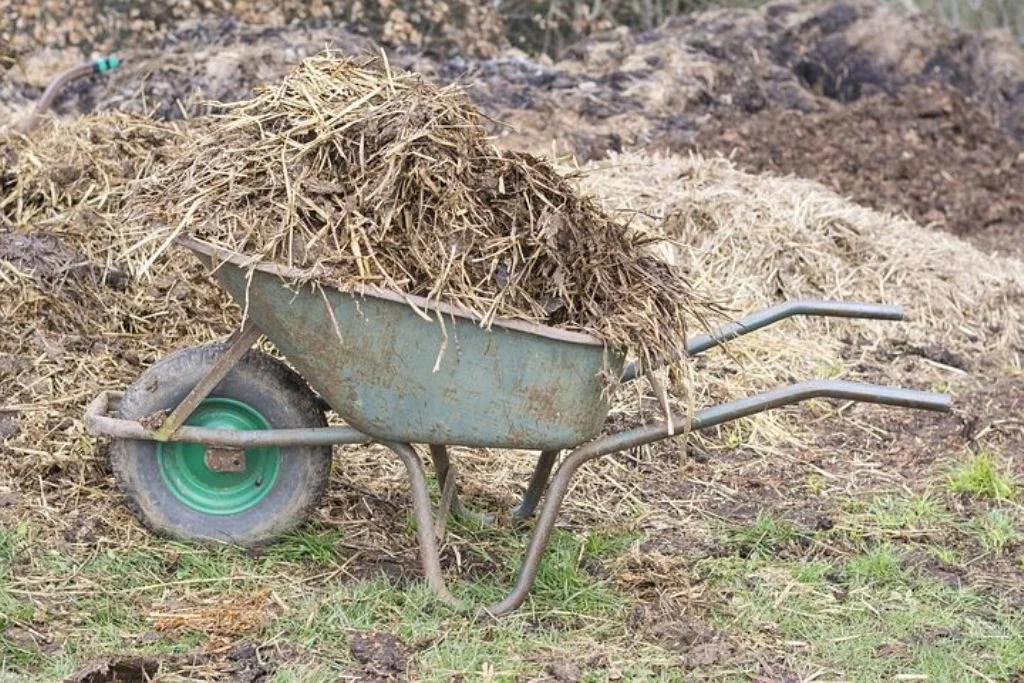
Green manure can be described as specific plant or crop varieties which are grown and turned into the soil to increase its organic matter.
Green manure is basically a type of organic fertilizer.
Either an entire fresh plant or a plant part (without any prior decomposition or composting) is directly used as manure in agriculture lands.
The practice of turning the undecomposed green plant tissue into the soil is called Green manuring.
Green manure finds popular use in the farming and agricultural industries ; are required to be added in bulk quantity.
The addition of green manure leads to increased nitrogen supply to the soil and increased availability of certain nutrients, thus increasing the overall productivity of the soil.
Types of green manures :
1. Green leaf manures :
Organic fertilizers often have a deficiency of nitrogen. Leguminous plants have the ability to fix the nitrogen in their root nodules.
Made of only leaves (instead of all plant parts) of some leguminous trees which are collected from trees, are mixed in soil (while they are still fresh) .
This type of manure steadily releases nitrogen into the soil.
Examples : Gliricidia, Sesbania, Pongamia.
2. Leguminous green manures:
Leaves, roots & stems of leguminous green manures are rich in nitrogen. The leguminous crops are first grown in the farmland & than plowed down & buried in the same soil when they are about to flower.
Examples : Mung beans, Soybean, black gram, Cluster Beans, chickpeas, Green Peas, Fenugreek
3. Cover crops:
Green manure cover crops act ‘a living mulch’ as most non leguminous plants are grown to cover the whole farmland to control weeds & prevent soil erosion.
Examples : Rye, Brassica, Oats, Radish.
Types of Green manuring :
(a) Green manuring in situ :
In this type of system manure crops are grown in the field and buried in the same field only which is to be green manured.
(b) Introduced green leaf manuring :
In this type of system, leaves and twigs from plants and trees from nearby lands and forests are incorporated into the cultivable fields.
It is an ideal practice in hilly areas.
Ideal Conditions for harvesting green manure :
(i) Crop : prefer legumes over non legumes
Characteristics of green manure crops :
1. Can establish and grow quickly.
2. Is tolerant to adverse climatic conditions such as drought, high and low temperature, water logging.
3. Is tolerant to pests and diseases.
4. Can be easily incorporated.
5. Have a quick decomposition.
6. Must be effective nitrogen fixer.
7. Should be capable of accumulating fixed nitrogen in 4-6 weeks in enough quantities.
(ii) Time of sowing : Best time is immediate sowing after first monsoon showers.
(iii) Time gap between the incorporation of green manure and sowing of other crops : new plants can be sown only after the decomposition of green manure which depends upon following :
(a) Weather condition : Decomposition is fast under hot and humid conditions.
(b) Nature of buried crops : Succulent tissues decomposes fast than woody ones.
(c) Soil texture and moisture :
In light textured soil with presence of optimum pressure , sowing can be done after 2-7 days. On the other hand, in high textured soil with high moisture or even in water logged conditions sowing is done after 7-12 days.
The advantages of green manure :
1. Green manure is a great substitute for chemical nitrogenous fertilizers.
2. After getting mixed in the soil, green manure decomposes & releases other great micro & macro nutrients as well.
3. This manure improves the overall quality of soil by enhancing its overall humus/biomass content.
4. Adding green manure to the soil strengthens the water holding capacity of it.
5. Adding green manures leads to increase in population of friendly microorganism in soil.
6. Green manures are budget friendly. It is an important component of low input farming.